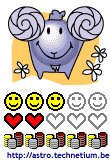Gattaca η καπιταλιστικη ουτοπια που ειναι κοντα.
Gattaca
The science fiction movie Gattaca is a piece of modern dystopic writing, speculating on a future in which humankind has used a new-found mastery over the human genome to create better, faster, stronger, more-long-lived humans.
Several ideas found within the movie have their roots in earlier utopian writings, but Andrew Niccol, the director of the film, shows the possible dystopic consequences that could take place if these ideas are enacted. The mood and design of the movie are reminiscent of several utopias that place emphasis on a (spartan) spirit, in which individual wants and desires are denied.
In addition, the main theme of the movie focuses on the consequences of genetic engineering, which relates to the utopian idea of eugenics, on personal freedom and in creating a new kind of discrimination. Webster’s New World College Dictionary defines eugenics as (the movement devoted to improving the human species through the control of hereditary factors in mating).
This idea has been present in much of utopian literature throughout history.
In Republic, Plato advocates a selective breeding program in order to create the best humans possible. Thus, the idea of eugenics stretches back over 2000 years in utopian literature.
Campanella, in The City of the Sun, written during the Renaissance, also applied a eugenics program to his perfect world (the Prince of Love) sees that men and women are so joined together, that they bring forth the best offspring. People must be selectively bred, just like horses, cattle or dogs (Plato 34).
This focus on breeding better and better humans is also found within modern utopian works. The idea of eugenics is at the very center of Gattaca.
Niccol takes the idea of eugenics a step further in Gattaca. He follows an idea found in much of science fiction literature in which instead of tinkering with the offspring of humans through breeding programs in which humans are matched up with mates that will reinforce or enhance desired qualities, geneticists tinker with the very genetic material of two people to create children that surpass what nature could do alone.
The people are not matched up by selective breeding, but the genes are selectively chosen. Genetic engineering is used to eliminate diseases; instead of dropping people with genetic diseases out of the gene pool, as eugenics would, the geneticists get rid of the bad genes responsible for these diseases (or even genes that predispose people to develop diseases. In addition, the geneticists can also create children who are enhanced. Instead of just selecting genes for the purpose of eliminating diseases, the scientists go beyond this to select genes for height, weight, intelligence, and longevity) creating designer children. The methods used to do this are partly dependent on what parents can afford to pay and their own morals or ethics (Gattaca: Production Notes).
The science fiction movie Gattaca is a piece of modern dystopic writing, speculating on a future in which humankind has used a new-found mastery over the human genome to create better, faster, stronger, more-long-lived humans.
Several ideas found within the movie have their roots in earlier utopian writings, but Andrew Niccol, the director of the film, shows the possible dystopic consequences that could take place if these ideas are enacted. The mood and design of the movie are reminiscent of several utopias that place emphasis on a (spartan) spirit, in which individual wants and desires are denied.
In addition, the main theme of the movie focuses on the consequences of genetic engineering, which relates to the utopian idea of eugenics, on personal freedom and in creating a new kind of discrimination. Webster’s New World College Dictionary defines eugenics as (the movement devoted to improving the human species through the control of hereditary factors in mating).
This idea has been present in much of utopian literature throughout history.
In Republic, Plato advocates a selective breeding program in order to create the best humans possible. Thus, the idea of eugenics stretches back over 2000 years in utopian literature.
Campanella, in The City of the Sun, written during the Renaissance, also applied a eugenics program to his perfect world (the Prince of Love) sees that men and women are so joined together, that they bring forth the best offspring. People must be selectively bred, just like horses, cattle or dogs (Plato 34).
This focus on breeding better and better humans is also found within modern utopian works. The idea of eugenics is at the very center of Gattaca.
Niccol takes the idea of eugenics a step further in Gattaca. He follows an idea found in much of science fiction literature in which instead of tinkering with the offspring of humans through breeding programs in which humans are matched up with mates that will reinforce or enhance desired qualities, geneticists tinker with the very genetic material of two people to create children that surpass what nature could do alone.
The people are not matched up by selective breeding, but the genes are selectively chosen. Genetic engineering is used to eliminate diseases; instead of dropping people with genetic diseases out of the gene pool, as eugenics would, the geneticists get rid of the bad genes responsible for these diseases (or even genes that predispose people to develop diseases. In addition, the geneticists can also create children who are enhanced. Instead of just selecting genes for the purpose of eliminating diseases, the scientists go beyond this to select genes for height, weight, intelligence, and longevity) creating designer children. The methods used to do this are partly dependent on what parents can afford to pay and their own morals or ethics (Gattaca: Production Notes).

Part of what makes the movie, Gattaca, a dystopian vision of the future is the dependence on money to create perfect children and the system of inequality that this system causes. The movie clearly shows a capitalist future. In Gattaca, you get what you pay for; if people choose to pay, they can have super-children with genes carefully selected to provide superior intelligence and physical capabilities.
If parents choose not to pay for genetic tinkering at all, if they choose to have a child the natural way, then their children are branded (in-valid) disqualifying them for excellent jobs and bright futures. Children that are born without genetic tinkering are inferior, with higher incidences of diseases, ailments, and lower IQs , in short they are no longer competitive against the (valid) children who have been carefully constructed to give them every advantage their parents genes could possible provide.

This idea of (valid) and (in-valid) people is part of everyday life in the world of Gattaca. You must be (valid) in order to attain certain jobs. For instance, to be hired at Gattaca, the space agency in the movie, as a potential astronaut, the applicant must be (valid.) In actuality the applicant must be better than just (valid.) Therefore, a person’s genes decide what kind of job the person can attain, and therefore how much money a person will make. An (in-valid) person may be hired as a janitor at Gattaca, but that is the only way across the threshold for such a person. (In-valids) are a new genetic underclass considered inferior because of their genes, they are judged as next-to worthless before even being given a chance due to their genetic profile. (In-valids) do the dirty work in this future vision, and in general, society as a whole believes that these inferior people should stay in their place - at the bottom of the hierarchy. This means that those with the money to pay for it can have the (best) children with the most competitive advantages, while those that can’t pay for genetic designing will have less competitive children. Therefore, the system of inequality perpetuates itself because an (in-valid) will not have the money to pay for top-quality genetic engineering for their children.

This system also severely limits personal freedoms in several ways. This limitation on personal freedom is also in the utopian vein, but in Gattaca, the vision is clearly shown through a dystopic lens. Many utopian writers, including Plato, More, and Campanella, advocate limiting personal freedom in order to create a more harmonious society. In Gattaca, the stifling effects of these limitations are illustrated. The main character, Vincent, is an (in-valid) who dreams of leaving earth and exploring space. However, he is not free to pursue this dream, because no matter how hard he studies, how good he becomes, he will never get the chance to follow his dreams because his genes are not (valid.) As one character says in the movie,
No one exceeds his potential, meaning their genetic potential.

This is a very dystopic concept to many Americans, who are traditionally raised to believe that hard work and persistence are what it takes to achieve their dreams, not that their very destiny is entwined in their genome. As Gore Vidal said, The world of Gattaca is totalitarian, really. Genetic engineering makes people better, more beautiful, more desirable, but what price will we pay for it (Gattaca: Production Notes)? Vincent beats the system though, by going through an elaborate process in order to trick the system into believing he is a (valid.) By doing this he proves that this system of (valid) and (in-valid) is not foolproof, and that the gene cannot explain every detail of a person’s life before it has been lived.
When contrasted with other science fiction works that also use genetic engineering to make better humans, it becomes apparent just how dystopic Gattaca is. Robert A. Heinlein and other science fiction authors have also played with the idea of genetic engineering, but in a more utopic vein. In Time Enough For Love, Heinlein explores a world where genetic engineering creates healthier, longer-lived humans, with none of the downsides displayed in Gattaca. People are allowed the freedom to be whoever they want, to try anything, without any restrictions due to their DNA, besides those imposed on breeding to prevent genetic diseases (Heinlein 384). While both Heinlein and Niccols play with the enlightenment ideal that science and rationality can make better humans and better worlds - surpassing what nature could do alone, Heinlein sees a rosier future stretching up, full of possibility, while Niccols keeps his eyes on the downfalls and traps that could lead to corruption and a dystopic future.
When contrasted with other science fiction works that also use genetic engineering to make better humans, it becomes apparent just how dystopic Gattaca is. Robert A. Heinlein and other science fiction authors have also played with the idea of genetic engineering, but in a more utopic vein. In Time Enough For Love, Heinlein explores a world where genetic engineering creates healthier, longer-lived humans, with none of the downsides displayed in Gattaca. People are allowed the freedom to be whoever they want, to try anything, without any restrictions due to their DNA, besides those imposed on breeding to prevent genetic diseases (Heinlein 384). While both Heinlein and Niccols play with the enlightenment ideal that science and rationality can make better humans and better worlds - surpassing what nature could do alone, Heinlein sees a rosier future stretching up, full of possibility, while Niccols keeps his eyes on the downfalls and traps that could lead to corruption and a dystopic future.

Works Cited
Agnes, Michael, ed. Webster�s New World College Dictionary, Fourth Edition. New York: Macmillan, 1999. 490.
Gattaca. Dir. Andrew Niccols. Columbia Pictures, 1997.
Gattaca: Production Notes. 1997. Columbia TriStar Interactive. 2 March 2003
<http://www.sonypictures.com/Pictures/SonyMovies/movies/Gattaca/the_film/production_notes.htm>.
Heinlein, Robert A. Time Enough for Love. New York: Ace, 1988.
Plato. Republic. The Utopia Reader. Eds. Gregory Claeys and Lyman Tower Sargent. New York: New York UP, 1999. 27-56.


Φανταστείτε έναν κόσμο όπου οι γονείς θα μπορούσαν να επιλέξουν τα χαρακτηριστικά των παιδιών τους ή ακόμη τις σωματικές και πνευματικές τους ικανότητες με μία και μόνο απλή παρέμβαση στο DNA τους. Αυτόν το κόσμο μας παρουσιάζει η ταινία Gattaca που για πολλούς απεδείχθη προφητική μετά τα άλματα της επιστήμης στον τομέα της γενετικής τα τελευταία χρόνια. Σε έναν τέτοιο κόσμο οι “γενετικά τέλειοι” άνθρωποι κατέχουν όλες τις εξέχουσες θέσεις και έχουν πολύ περισσότερες ευκαιρίες, παραγκωνίζοντας τους “φυσιολογικούς” ανθρώπους που αναγκάζονται να αντιμετωπίσουν την περιθωριοποίηση και τον στιγματισμό από το υπόλοιπο κοινωνικό τους σύνολο.Ένας από αυτούς είναι και ο Βίνσεντ, ο οποίος έχει σαν όνειρο να ταξιδέψει στο διάστημα. Για να πραγματοποιηθεί, όμως, αυτό θα πρέπει να γίνει μέλος της εταιρίας Gattaca, ενός οργανισμού που απαρτίζεται από τους “ξεχωριστούς” και “τέλειους” ανθρώπους και οργανώνει διαστημικές αποστολές. Ο Βίνσεντ, όμως, λόγω της μεγάλης του μυωπίας και ενός σοβαρού προβλήματος στη καρδιά του είναι αδύνατο να εισχωρήσει σε αυτόν τον οργανισμό. Τη λύση τότε προσφέρει ο Τζερόμ, ένα πρώην μέλος της “ανώτερης” τάξης ανθρώπων που είναι πλέον καθηλωμένος σε αναπηρικό καροτσάκι, ο οποίος δέχεται να αλλάξει ταυτότητα με τον Βίνσεντ προκειμένου να τον βοηθήσει. Έτσι με η βοήθεια του ο Βίνσεντ εισχωρεί στην εταιρία κερδίζοντας συνεχώς έδαφος, έως ότου ένας φόνος απειλεί να αποκαλύψει την πραγματική του ταυτότητα.Ο Άντριου Νίκολ πραγματεύεται το θέμα με πολύ προσοχή και εμβαθύνει στην κοινωνική ανισότητα και στον ρατσισμό που αναπτύσσονται, ενώ παράλληλα συνδυάζει και το πνεύμα της ταινίας με τις φοβίες των σημερινών ανθρώπων μπροστά στις συνέπειες που μπορεί να φέρει η απερίσκεπτη παρέμβαση στους κανόνες της φύσης. Η ταινία κάνει επίσης και έναν υπαινιγμό στην εξέλιξη της τεχνολογίας και την επέμβαση της με σκοπό να απαλείψει κάθε ψεγάδι ή ελάττωμα κάνοντας το καθετί τέλειο, δημιουργώντας, όμως, ταυτόχρονα μια εικόνα, μια εντύπωση του απόκοσμου, του λιγότερου ανθρώπινου.Σε αυτή την μελλοντική σύνθεση ο σκηνοθέτης δίνει και μια νότα του παρελθόντος. Έτσι έχουμε έντονη την παρουσία στην ταινία στοιχείων της δεκαετίας του 40, κυρίως στον ενδυματολογικό χώρό, αλλά επίσης και στην εξέλιξη της πλοκής που θυμίζει νουάρ.
Η ταινία είναι αρκετά καλή από σκηνοθετικής απόψεως, υστερεί, όμως, στο σενάριο, όπου ξετυλίγει με εξυπνάδα, αλλά πολύ βιαστικά την πλοκή της. Αυτό το σφάλμα δεν μπορεί, δυστυχώς, να καλύψει ούτε η εξαιρετική ηθοποιία των νέων και ταλαντούχων πρωταγωνιστών, ούτε και ο σκηνικός διάκοσμος που στηρίζει μια μελλοντική πολιτεία η οποία δεν μοιάζει πέρα για πέρα μακρινή.
May the force be with you
Copyright © Demetrios the Traveler





















Δεν υπάρχουν σχόλια:
Δημοσίευση σχολίου